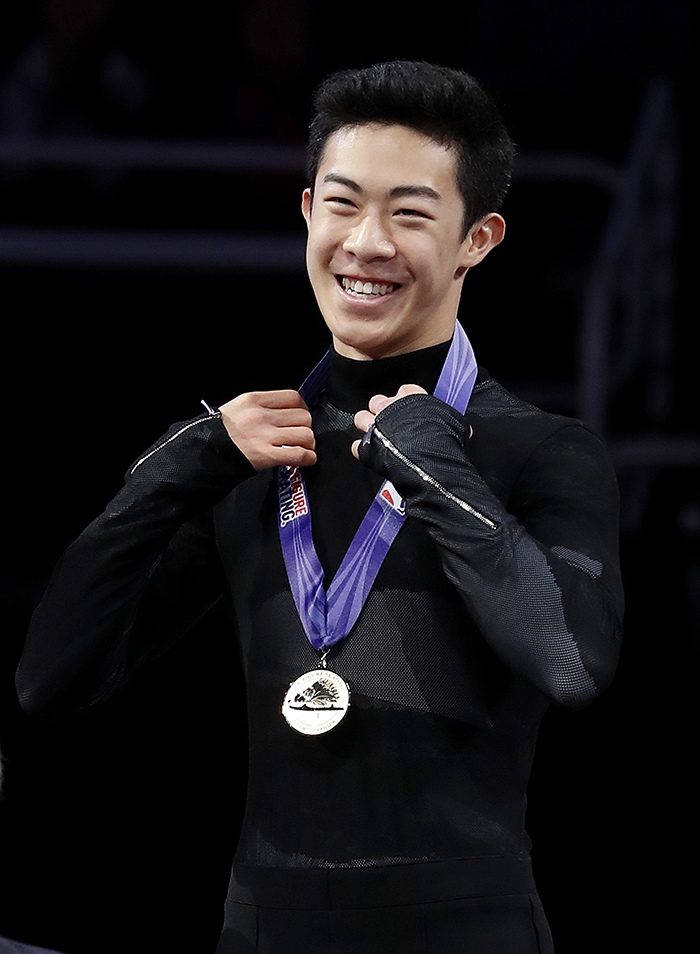By Assunta Ng
NORTHWEST ASIAN WEEKLY
Man-Tzu Tuan of Taiwan was fired from her job at a Chinese restaurant outside Sydney, Australia, after she told her boss that Taiwan is not a part of China, according to a New York Times article on Feb. 19.
The Taiwan-China relations in Australia could raise a similar issue in Washington state, as the presence of Chinese investment is growing immensely as it is in Australia. Washingtonians have benefited from Chinese investors buying up real estate and other types of businesses, including technology companies and restaurants in Chinatown, Bellevue, and other cities in the Greater Seattle area.
The hot market for Chinese homebuyers a few years ago has shifted from Vancouver B.C. to Seattle because of better prices and friendlier tax laws. The Emerald City is similar to B.C. in its weather and proximity to mountains and water. Plus China is Washington’s No. 1 trading partner, whereas Taiwan is No. 4.
Labor law
To my knowledge, our state’s Chinese business owners have not been pressuring employees in expressing that “Taiwan is a part of China.” Nor have I heard of Chinese owners compelling employees to agree with them.
Washington state’s labor laws prohibit employers to discriminate on the basis of political differences, just as it is illegal to discriminate against someone in employment based on national origin. According to the Seattle Municipal Code, under National Origin & Employment Policies/Practices, it is illegal for an employer or other covered entity to use an employment policy or practice that applies to everyone, regardless of national origin, if it has a negative impact on people of a certain national origin and is not job-related or necessary to the operation of the business.
An employee’s political belief has nothing to do with job performance. The restaurant owner should evaluate his staff based on customer service and attitude, and relationship with his co-workers.
However, I met a guy who worked for a big health organization, complaining that, “It is easier to be gay than to be Republican.” He talked about being ostracized by Democrat colleagues. Although it was not a pleasant working environment, his employment was not being threatened.
In our newsroom, the Seattle Chinese Post and Northwest Asian Weekly have always been diverse. I couldn’t imagine myself not having Chinese, Taiwanese, Vietnamese, Malaysian, or Hong Kong staff. Plus our pool of writers is filled with Filipinos, Koreans, Japanese, and others. The richness of their perspectives makes our publications vibrant and interesting. We complement each other’s skills. Our differences in backgrounds have never been an issue. Chinese and Taiwanese staff have worked side-by-side together for decades, and they have become friends.
Being in a media career is stressful enough, I need not add another layer of stress on my people by forcing them to follow my beliefs and actions. As a publisher, I never tell my employees what their religious or political belief should be. I never even ask about their religions. And I never probe whom they voted for.
It’s their choice. They won’t get fired just because they vote for someone I dislike. They won’t get a pay cut either just because they support causes that I won’t endorse.

Lunar New Year lunch at the office (Photo by George Liu)
To work for the Asian Weekly and Chinese Post, they don’t have to agree with me. It’s bad to have all yes-people in a newspaper environment. Innovation is when someone can see beyond what others can’t, and think ahead of what others can’t imagine. We have to be open-minded and tolerate people who don’t think like us. Understanding why people think or act in a particular manner is the beginning for opening dialogue. The willingness to listen and share is key to building bridges. Honesty is an important asset in any organization.
I am a confident person, I don’t need to be pleased or praised constantly. Sometimes, our writers have viewpoints I don’t necessarily agree with, and I don’t challenge them at all. If the article consists of facts and not bias, and our readers can learn something from it, I am for it. I never take it personally.
Nowadays, being objective means you present not only both sides, but as many sides and angles as possible and sometimes, accepting opinions we don’t agree with. It’s hard to do because we have to reach out to people with whom we have no connection. It’s time-consuming to do such articles. Our challenge is, we are short on manpower and time.
The First Amendment, freedom of speech, is our motto. As long it doesn’t contain libel, and readers submit their names to stand by what they write, we try our best to give them a platform. However, I don’t have respect for, and have to decline submissions from, anonymous writers who criticize others (specific community leaders) and not have the guts to reveal who they are. They can request that their names be withheld to protect them, and we will be glad to comply.
In the past, we did have some community members who chastised us into doing certain things because I am Chinese. They would say, “You are Chinese, you should side with China or Chinese people.” I can imagine what former U.S. Ambassador to China Gary Locke experienced when he was in China. Social media accused him of having a Chinese face, but being white inside.
Sorry, no. To live by principles is vital for my organization’s credibility. I am Chinese by race, but I am an American citizen. My loyalty is to America, not to China (my birthplace and where many of my relatives live), not Taiwan (where my relatives are), not Hong Kong (where I was raised). We follow America’s policies, period. We are American newspapers publishing in Chinese — the Seattle Chinese Post. We cannot claim to be Chinese, and demand equal rights and protection under America’s laws.
The Olympics
“Who do you support in the Olympics, Chinese or Americans?” people frequently ask me.
“Isn’t it odd if you applaud Americans and not Chinese, since you are Chinese?”
“You are not Chinese if you don’t applaud Chinese athletes.” This is a common accusation from other Chinese.
People have all kinds of assumptions and expectations just because I am a Chinese American.
My Chinese heritage has instilled in me curiosity to keep up with what’s going on in China, Japan, and Korea. And I emphasize curiosity, not preference. And I wish them well and often am in awe of their progress in the Olympics, remembering how far behind they were on the medal record then.
But my pride and joy go to Americans, especially Asian American athletes, who have overcome so much to prove themselves. I admire them because they have broken many barriers, including the stereotypes that Asian Americans can only be “strong academically, but weak athletically.”

Chloe Kim (Photo by Vegard Wivestad Grot/AP)
Opportunities in America’s sports have usually been awarded to white people and not people of color, especially in the Winter Olympics. The stereotypes of Asians being small in stature hurts the chances and confidence of many Asian Americans pursuing sports. It’s important to inspire and support young Asian Americans to achieve their goals, and obtain equal opportunities and rights in America. I am rooting for our next generation of Asian Americans, such as Chloe Kim, Nathan Chen, and Maia and Alex Shibutani.
They have proved many naysayers wrong. Asian American athletes are strong and resilient, powerful and graceful simultaneously in their performance. It’s exhilarating to watch them.

Nathan Chen (Photo by Tony Avelar/AP)
Despite my applause going to Asian Americans first, I recognize and acknowledge excellence displayed by others. For instance, I enjoy watching Japanese gold medalist Yuzuru Hanyu in his ice skating performance and every detail in his show — the costumes, music, and his mesmerizing moves. Even the French and Canadian ice skating pairs have earned my applause when they were so spectacular. Their performance touched my heart and soul. What I don’t want to do is to cheer for someone just because he and I are of Chinese descent. Sure, I clap simply because I realize the athletes have worked so hard for this moment — a glimpse of their best ability resulting from years of devotion, determination, and practice.

Alex Shibutani and Maia Shibutani (Photo by Ben Margot/AP)
As immigrants in another country, our ancestral land sometimes creates merit and burdens. It contributes to identity conflicts and confusion for some. But I have no illusion about where I belong. This is the country that has given me everything. Being tangled with the China-Hong Kong-Taiwan conflict is the last thing I want for myself. My kids and I don’t always see eye-to-eye on everything. What is certain, is that we embrace the flag of red, white, and blue.
Assunta can be reached at assunta@nwasianweekly.com.



